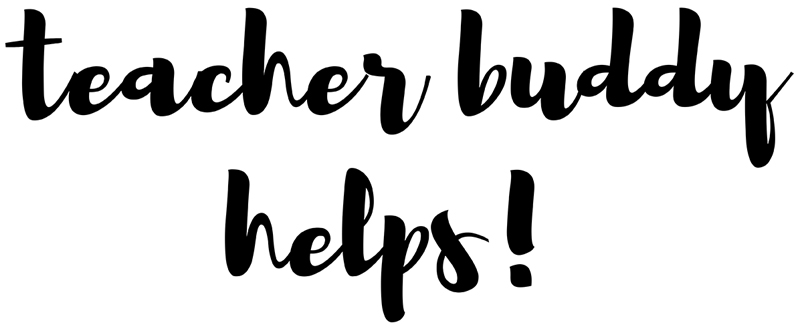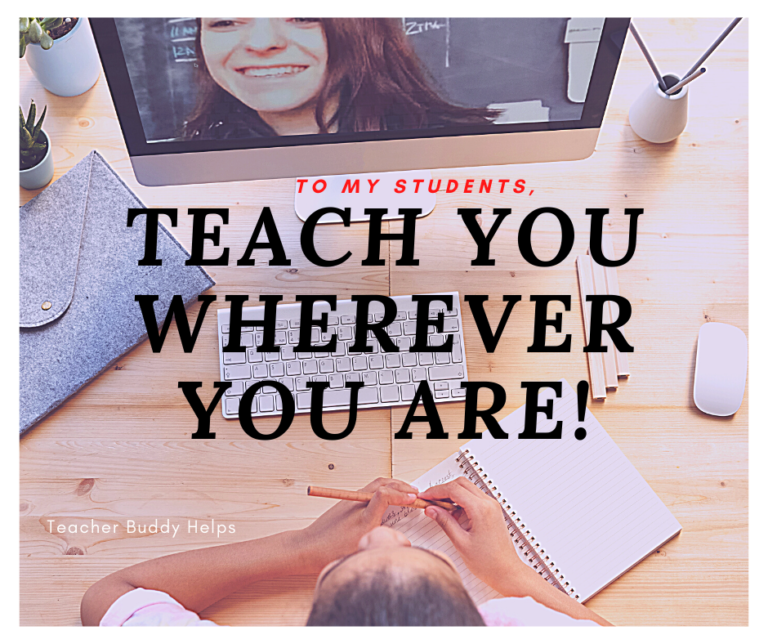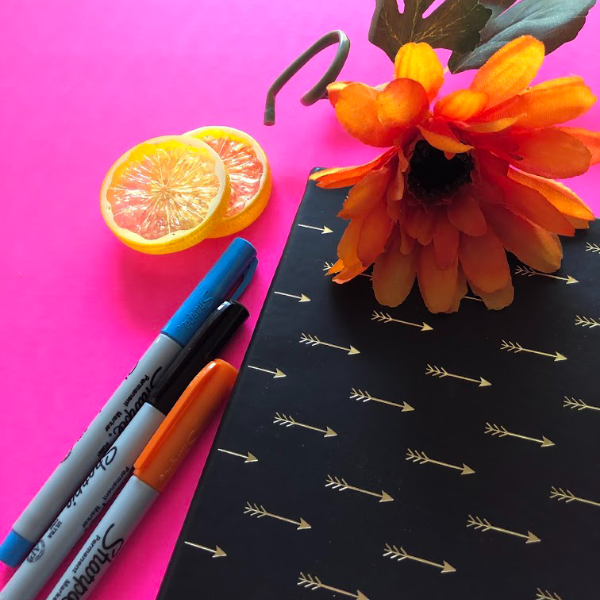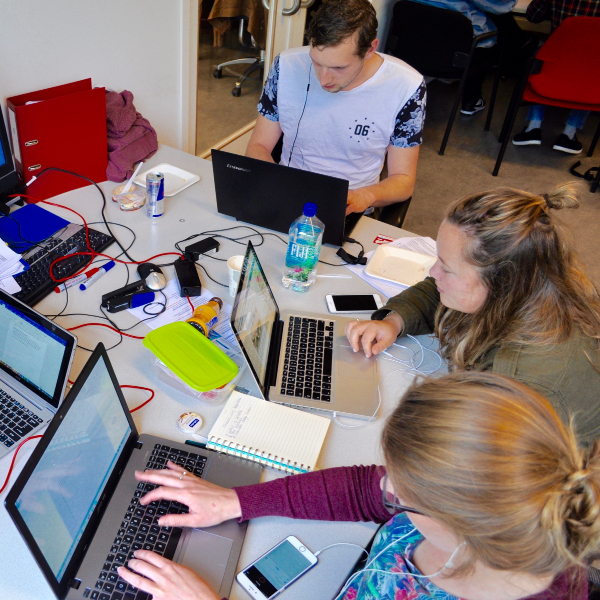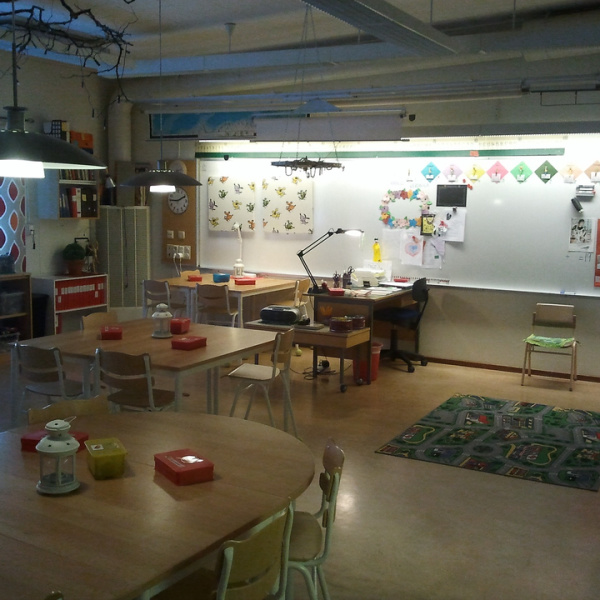7 Lessons from Student Teaching
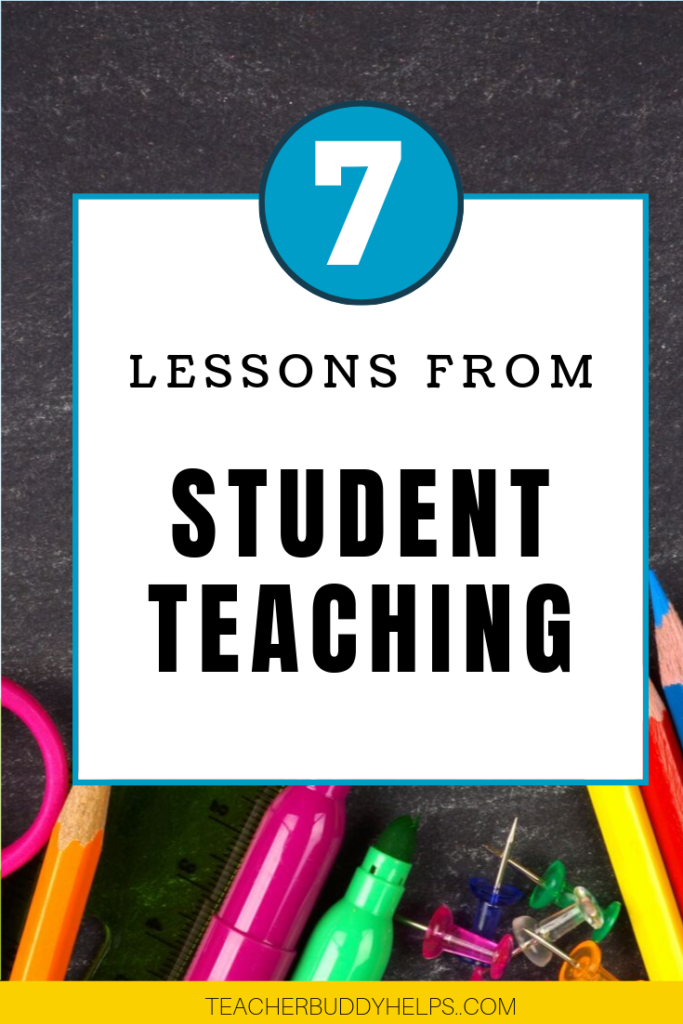
Are there really seven lessons from student teaching? Student teaching is such an awesome way to get some valuable experience under the guidance of a veteran teacher.
When I did my student teaching years ago I was fortunate enough to be in a program that offered me three different classroom experiences. Of the three, two were fabulous and the other was mediocre.

What are the 7 Lessons from Student Teaching?
Let me give you the list first, and then go into detail about each one.
- Embrace the Learning
- Ask Questions
- Practice Classroom Management Too
- Request to Take Over
- Be Bold & Creative
- Maintain a Digital (and Physical) Portfolio
- When Interviewing, Take Both Portfolios with You.
Now let me dig deeper into each one of these for you.
1. Embrace the Learning
You will be learning SO SO SO much during your time in this classroom.
TAKE IT ALL IN AND EMBRACE IT!
Don’t be so concerned about appearances and what you do know or don’t know that you lose sight of being in the here and now.
Learn from your mistakes. Everyone makes mistakes, and that’s OK. Don’t dwell on them or think that you’ve failed. Embrace the learning process of your mistakes.
If the students are 3rd grade or older, explain to them that you are a learner too. That what you’re learning is “how to be a good teacher.”
I have another article that I wrote recently about learning from mistakes. Read it here.
2. Ask Questions
Never feel stupid or silly asking questions. We all learn from each other, and that is the whole purpose of student teaching – TO LEARN!
Ask questions of all these people:
- your master teacher
- your college professor
- the students
- parents (if allowed)
- the principal
- the assistant principal
- grade level partner teachers
- other student teachers
- staff at the school, such as the librarian
You’d be amazed at all of the bits of information you gather by being brave enough to ask questions. The other student teachers can tell you what issues they are having.
Your master teacher can give you advice on your lesson delivery. Your college professor can provide overall guidance and support, as well as a critique of your lessons.
I have created a FREE downloadable list of 101 Teacher Tips. You can access it by completing the form and I will zip it right over to you on your email.
**
3. Practice Classroom Management too
In a student teaching environment, you will most likely have to incorporate the management system in place by the master teacher. Go ahead and try this system.
If you’d like to see how other teachers handle classroom management, ask the principal if you can observe in other classrooms on your free time.
Remember earlier I mentioned that one of the three experiences I had was just mediocre. This teacher did not have a good, consistent classroom management system in place and the students did not behave well.
But my other two experiences were great. The teachers had strong systems in place and I was able to follow along and continue to enforce their management routine.
One note of interest is that one was a 5th/6th combination class and the other was Kindergarten, so I got to see both ends of the spectrum at a K-6th school. Another valuable lesson from student teaching!
4. Request to Take Over
During one of my assignments, I had one master teacher tell me she was waiting for me to say I was ready to teach. And I was waiting for her to invite me to.
I kept wondering when she would let me teach and spent a week observing her before the two of us figured out our miscommunication.
So, just to be sure this doesn’t happen to you, request to take over on the second or third day. But be sure that you are ready to. I suggest taking one or two subject(s) at a time and then slowly add more.
Unless, of course, your college program “runs” the student teaching experience in a different way – then you have to follow their guidelines.

5. Be Bold & Creative
This a great opportunity to try a new concept or idea. Take this opportunity to be bold and creative.
Working closely with your master teacher, let him/her know about your idea and what all the details entail.
Make sure that you have thought out all the steps for implementation so that you have some talking points when you approach the master teacher with your idea.
Right before I began my student teaching, I had just returned from a long trip to Europe. So I used slides from my trip to create a unit on the division of Berlin and the Berlin Wall (yes it was still up when I did my student teaching).
The absolutely awesome part of this experience was the reaction of the students.
This was a 5th/6th gifted combination class. The students were spellbound by the lesson and had so many questions on communism and why it exists, and how the citizens feel about it, etc. It was quite a lesson from student teaching!
When we had to stop the lesson because it was time to go to lunch the students let out a moan. I told them we could continue the discussion after lunch. This made me feel REALLY GOOD about the lesson AND about captivating the students’ attention.
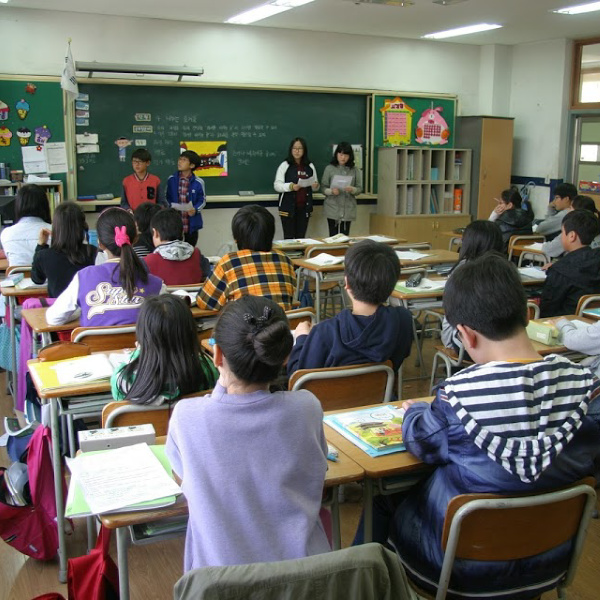
**
6. Maintain a digital (and Physical) portfolio.
Back in the day when I was student teaching we didn’t have digital portfolios. But recently, as
I have been so impressed with the prospective teachers who have provided these during an interview. Often the interview panel looks through them after the interview.
7. When interviewing, take both portfolios with you.
Since you don’t have a classroom teaching work history to include, then this highlights your experience and provides a glimpse of your skills to an interview committee.
Some committees won’t have the time (or willingness) to hook up your digital files, so have a few physical samples of work you can provide.
I would suggest a few of these: sample lesson plans, photos of you teaching the class, student work products, sample worksheets you’ve created or letters to parents.
You need to bring a “physical” portfolio also, just in case the team does not have a way (or desire) to look at the digital one. If you are in the same area, offer to drive back to pick it up the following day.
Of course, if you are from out-of-town then you can’t do this. So, I suggest you offer to wait in the lobby of the HR office (or wherever) for them to have a chance to look at the portfolio.
Enjoy your student teaching experience, it goes by very fast!
And before you know it, you are in your very own classroom for the first time. I actually had to substitute teach the first six months after I graduated, AND that was an excellent learning experience as well.
Great topic for another article.
Until next time,
Your Teacher Buddy Dawn
